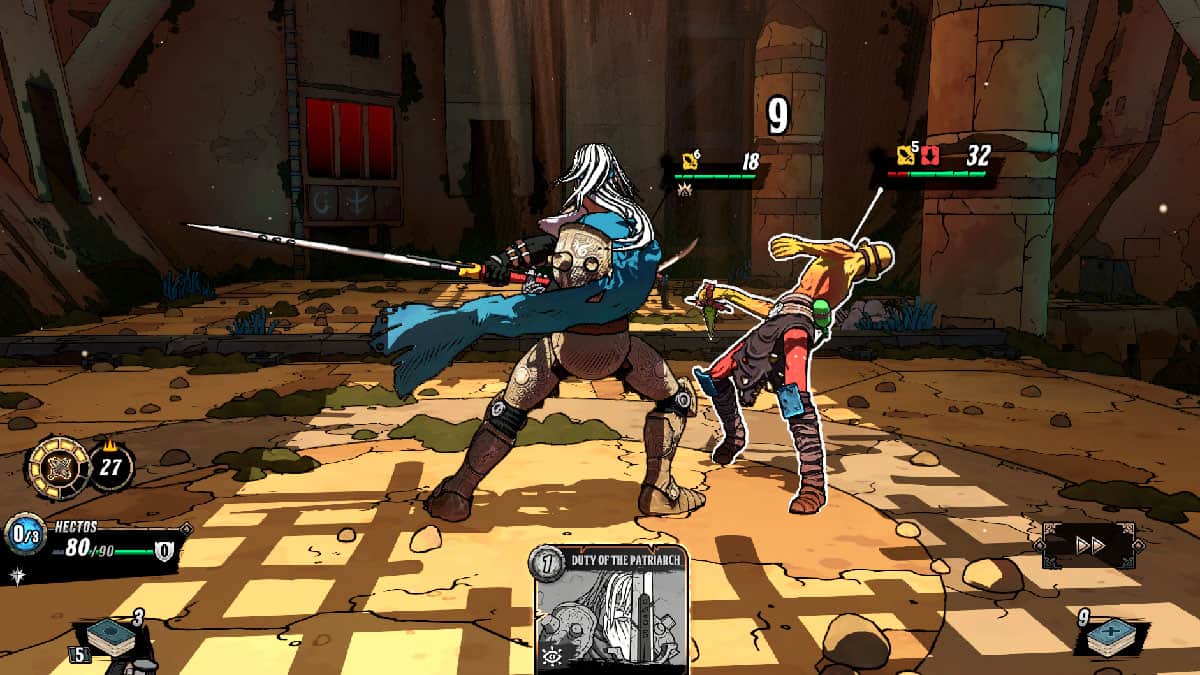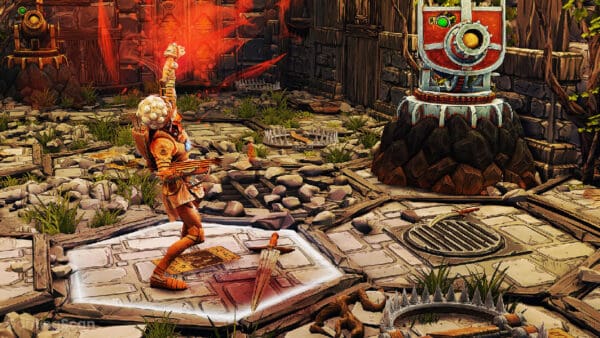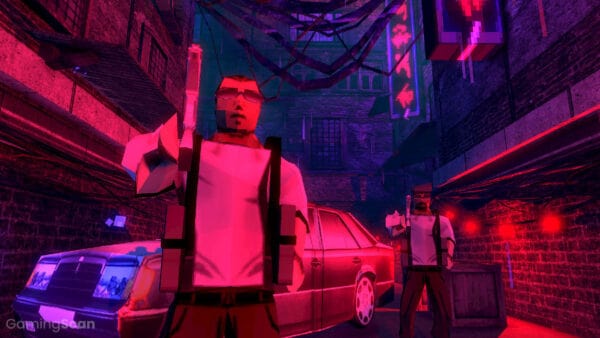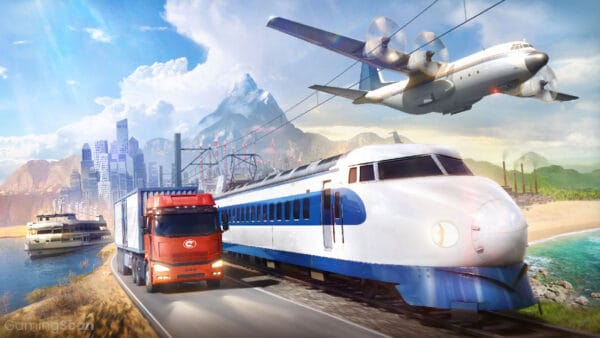Whether indie or AAA, roguelike or linear, the best deckbuilding games come in all shapes and sizes.
As such, deckbuilding fans have a vast selection of new titles to pick from, with more and more releasing each week.
In this list, we’ll highlight the best deckbuilding games on Steam, PlayStation, Xbox, and Nintendo Switch to add to your collection.
We encourage you to check back in the future to see more suggestions for the best new deckbuilding games!
Table of ContentsShow
HELLCARD
Platform: Windows
First up on our list of the best deckbuilding games is HELLCARD, a roguelike RPG that puts a unique cooperative spin on the genre.
In this game, players descend into papercraft dungeons to battle mobs of monsters with help from computer-controlled companions or other players.
What sets HELLCARD apart from other deckbuilders is its emphasis on monster placement, wherein attacks must be carefully positioned to maximize their effect.
This is further complemented by three distinct heroes: Rogue, Warrior, and Mage, each with a targeted playstyle that favors certain tactics over others.
Active DBG: Brave’s Rage
Platforms: Windows, Mac
Fans of ATB-style combat systems will feel right at home playing Brave’s Rage, a roguelike deckbuilder courtesy of ISVR and Astrolabe Games.
Each playthrough sees you assembling a two-character party from a total of 9 playable Braves before embarking on a challenging JRPG adventure.
Battles require players to think critically as they make strategic decisions in real time and build up a deck of powerful attacks.
The stakes become even higher as players ascend Brave’s Rage’s Challenge Tiers to unlock new characters and take on greater threats.
Luck be a Landlord
Platforms: Windows, Mac, Linux
Standing apart from the other best deckbuilding games on this list, Luck be a Landlord is a roguelike deckbuilder with slot machine mechanics.
While that essentially sounds like gambling, the game does not contain any real-world currency gambling or microtransactions.
Instead, the slot machines serve as a means of earning money to pay your character’s rent and appease an increasingly greedy landlord.
With each payment made, players have a chance to add a new resource or modifier to their deck to ensure they can afford the next bill.
Beneath Oresa
Platform: Windows
Moving along, Beneath Oresa is a roguelike deckbuilder that injects fighting game mechanics into its gameplay loop.
This combination proves utterly satisfying as every card played is translated to a hefty blow or swift strike to the enemy.
With that said, strategy is still at the heart of Beneat Oresa’s gameplay, with players carefully choosing their cards, upgrades, and artifacts.
Like Brave’s Rage, parties are comprised of two characters from a larger roster, allowing for dozens of possible duos with powerful synergies.
Vault of the Void
Platform: Windows
Next on our list of the best deckbuilding games is Vault of the Void, a 2D roguelike builder developed and published by Spider Nest Games.
Blending CCG and roguelite progression, it sees you engaging in fast-paced battles that prioritize transparency and low RNG outcomes above all else.
To this point, players can see previews of which enemies they’ll be facing, any potential rewards, and events that will appear during a given run.
Cards can be further upgraded and customized over time using Void Stones to infuse new abilities and help defeat evil minions.
Fights in Tight Spaces
Platforms: Windows, Xbox One
Fights in Tight Spaces is a stylish blend of deckbuilding, turn-based tactics, and high-octane animated fight sequences in one delicious package.
In it, players construct balanced decks that allow them to dominate the battlefield by picking the best positioning and attacks for their character.
The game features 200+ cards catering to different playstyles along with a myriad of branching events and choices to make throughout each run.
There are also daily missions to take on, with online leaderboards that let you compare your performance against other players.
Inscryption
Platforms: Windows, PS5, PS4, Switch, Mac, Linux
If you’re a fan of roguelike deckbuilders then Inscryption will likely scratch the same itch with a dash of unsettling atmosphere.
The game comes from Daniel Mullins, creator of Pony Island and The Hex, and explores similar horror themes.
In it, you take on the role of a prisoner forced to play a sadistic card game against an unhinged host with multiple personas.
The main gameplay component is card-based battling using animals as vessels for violence, though you’ll also encounter escape-room-style puzzles.
Loop Hero
Platforms: Windows, Switch, Mac, Linux
Combining deckbuilding gameplay with roguelike mechanics, Loop Hero is a one-of-a-kind tactics game with an auto battler feel.
In it, you’re tasked with arming a hero with gear before setting them loose on randomly generated routes filled with enemies and obstacles.
As you complete loops, your deck expands, revealing new enemy, building, and terrain cards that can be placed in key points to generate resources.
The game offers infinite loop path variations along with an array of unlockable character classes that will have you switching up your approach every run.
Across The Obelisk
Platforms: Windows, Mac, Linux
Our next pick for the best deckbuilding games is Across the Obelisk, which has become increasingly popular among fans of the genre.
Throwing co-op into the mix, it sees 1-4 players banding together and choosing from 11 characters with unique starter decks and abilities.
These cover a wide range of fantasy archetypes along with some more unconventional heroes with clever playstyles that can synergize with teammates.
If you’ve ever wanted to play through a deckbuilder with a friend, then Across the Obelisk is the perfect game to do so.
Gordian Quest
Platform: Windows
Gordian Quest is another deckbuilder that shares many similarities with other entries on this list while differentiating itself in a few notable ways.
The first is a greater emphasis on positioning, with certain cards having special effects activate whenever your character enters a specific zone on the battlefield.
Additionally, the game has you controlling multiple characters with their own decks and level progression instead of just one.
There’s also a skill tree that affects the mechanics for drawing new cards, upgrading certain cards, and assigning stat buffs to each character in your party.
Tainted Grail: Conquest
Platform: Windows
Continuing on, Tainted Grail: Conquest is a dark fantasy deckbuilder with roguelike progression and RPG mechanics that make for a satisfying blend.
In it, you’re tasked with exploring ever-changing maps while fighting deadly enemies as you look into the fate of the mysterious island of Avalon.
While traveling through these treacherous lands corrupted by dark forces, you’ll take on quests, save NPCs, and help build up your own village.
Tainted Grail boasts nine different character classes that can be further modified to create new and inventive combinations with unique synergies.
Legends of Runeterra
Platforms: Windows, iOS, Android
Created by Riot Games, Legends of Runeterra adapts many of the concepts from the studio’s popular MOBA to deliver a refreshing take on deckbuilders.
This is most evident when looking at the game’s card selection, which is broken down into three sections: Champions, Followers, and Spells.
Each category features a wide range of unique abilities and effects that aren’t currently offered by other deckbuilders.
Couple this with a MOBA-inspired design and LoR feels like a completely different beast that never strays too far from the classic card battle format.
Magic: The Gathering Arena
Platforms: Windows, Mac, iOS, Android
Currently available on PC and mobile, Magic: The Gathering Arena offers the best digital incarnation of the classic deckbuilder to date.
Even better, it manages to cater to existing Magic players while being approachable enough for newcomers.
Many of the same deck strategies and techniques from classic Magic: The Gathering work in Arena while benefitting from cool digital effects and animations.
Developer Wizards Digital continues to support the game with ongoing updates and gameplay balances.
Slay the Spire
Platforms: Windows, PS4, Xbox One, Switch, Linux, Mac, iOS, Android
Slay the Spire is a 2D card-strategy roguelike in which players pick from one of several playable characters with unique starting conditions that affect their run.
The goal is to ascend a series of levels within a spire while encountering numerous enemies and rewards depending on the path taken.
Along the way, you’ll have a chance to rest up at campfires, buy and sell cards at shops, obtain gear from chests, and explore other choice-based encounters.
If you’re a deckbuilder fan, there’s a good chance you’ll enjoy mastering each character’s playstyle as you ascend the Spire.
Monster Train
Platforms: Windows, Xbox One, Switch, iOS
Another solid recommendation for anyone who loves Slay the Spire is Monster Train.
In it, players are tasked with guiding a train filled with monsters across a hellish landscape that has frozen over.
You have five monster clans to pick from that can be leveled up throughout the game to unlock new cards for future playthroughs.
Naturally, combat is turn-based and complemented by traditional card-battling mechanics that let you mix and match various minions and spells.
Griftlands
Platforms: Windows, PS4, Xbox One, Switch, Mac, Linux
Seeing how welcoming fans have been of Klei’s deckbuilding RPG Griftlands, there’s a good chance you’ve already heard of the game.
Either way, we’ll take any opportunity to highlight a fantastic game from a beloved developer whose catalog includes hits like Shank and Don’t Starve.
The game does a good job of striking a balance between card-based battles and narrative sequences that change based on the player’s choices.
This results in typically longer runs compared to other deckbuilding roguelikes as Griftlands takes its time establishing its setting, characters, and stakes.
Card Hog
Platforms: Windows, iOS, Android
Developer SnoutUp appears to have a strange infatuation with games involving pigs that has spilled over into deckbuilders.
Described as a ‘pig-driven cavern explorer roguelike,’ Card Hog manages to distinguish itself in a few unique ways.
For one, the cards double as the actual map your character is traversing; second, dungeons are jam-packed with enemies, traps, weapons, and loot.
If you’ve grown tired of the same old deckbuilders, Card Hog is a great alternative that will change how you view the genre.
Dicey Dungeons
Platforms: Windows, Xbox Series X/S, Xbox One, Switch, Linux, Mac, iOS, Android
Another indie gem that will appeal to deckbuilding fans is Dicey Dungeons, a cross between classic deckbuilding and dice-rolling gameplay.
In lieu of cards, players roll dice to determine actions, attack sequence, and damage output.
The story is presented as a game show of sorts in which the player character is trying to make it to the end to have their biggest wish granted.
There are multiple classes to play as, each with a different persona and unique passives tied to their skills, personality, and motives.
Hearthstone
Platforms: Windows, iOS, Android
There’s a good reason why Blizzard’s card battler remains one of the most popular deckbuilding games on the market.
Blizzard has always focused on making Hearthstone appeal to a broad demographic of players, even those who typically don’t play card games.
As such, the game features an easy-to-read UI, engaging animations and sounds, well-paced matches, and ongoing content updates from year to year.
Add the fact that it’s free to play, and it’s easy to see why it’s still the go-to deckbuilder for many players.
Gwent
Platforms: Windows, PS4, Xbox One, iOS, Android
First appearing as a highly-addictive minigame in The Witcher 3, Gwent would later release as a standalone card game in 2018.
Played primarily in taverns on gambling tables, the Gwent we know today has been drastically expanded upon with quality-of-life improvements.
This includes new card designs, visual effects, and a wider selection of spells, units, and special abilities than the original bite-sized Witcher 3 version.
It also features support for ranked and casual multiplayer with a free-to-play structure that makes it easy for anyone to pick up.




